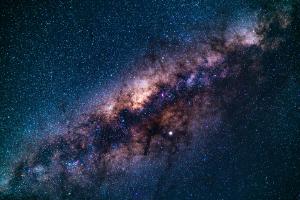In the same section
-
Share this page
ARC: research project "cosmology"
Cosmology tests of Particle physics models

This research project aims to identify viable theoretical models and experimental signatures associated with dark matter particles that are very weakly coupled with normal matter particles.
Even with highly suppressed interactions, dark matter particles can leave distinctive signatures in particle physics experiments and in cosmology. Based on these signatures, researchers will study the possibility to determine the properties of the universe’s dark sector, and the mechanism by which dark matter was produced in the primordial universe, using the production of long-lived particles in particle colliders and beam dump experiments.
Additionally, researchers will conduct a complementary analysis of the impact of weakly couple particles on the formation of small-scale structures, the cosmic background radiation, primordial nucleosynthesis, and the 21 cm line, which opens a new window on the history and evolution of the primordial universe.
Their interdisciplinary approach, at the crossroads of particle physics and cosmology, is constantly guided by experimental results. Our goal is to highlight new aspects of the phenomenology of dark matter, while proposing new avenues for its detection.
Coordination : Laura Lopez Honorez, Service de Physique théorique, Faculté des Sciences
